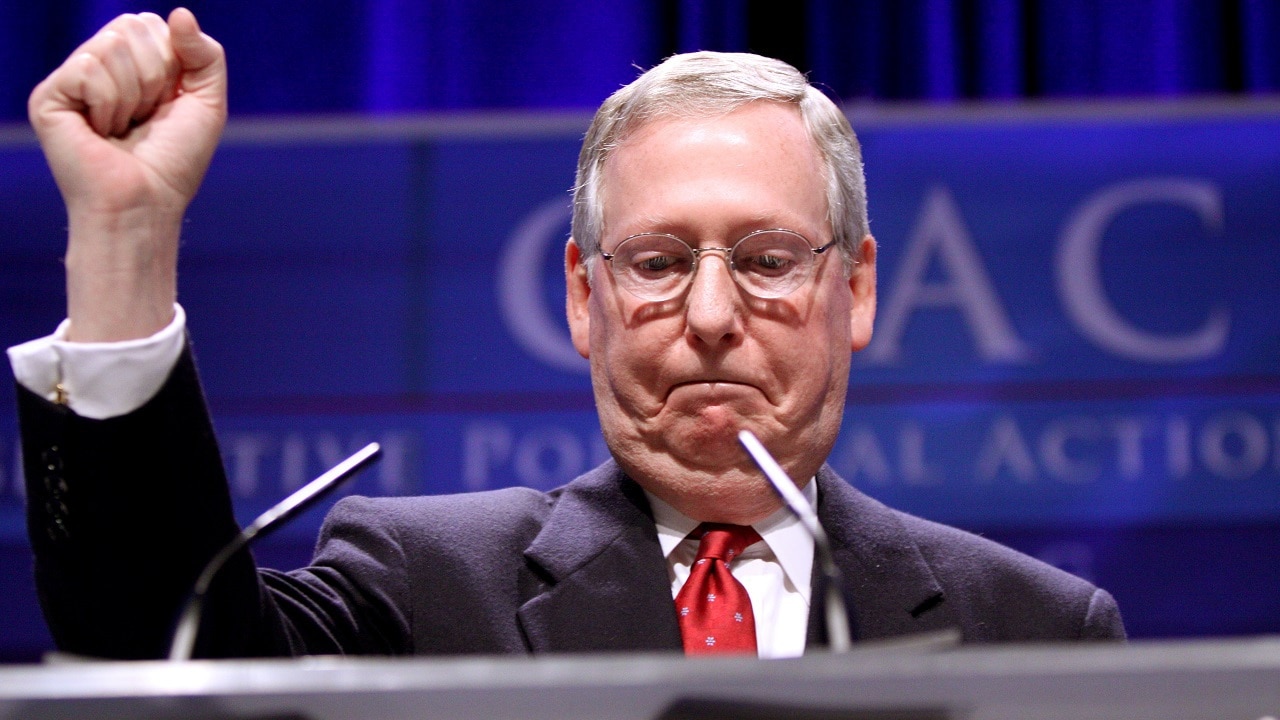Senator Mitch McConnell, the Republican Senate Minority Leader, was labeled the “least popular politician in America” in December.
An aggregate of polls from RealClearPolitics showed that just 24% of Americans see McConnell in a favorable light, while 59% view him unfavorably. It gave the Kentucky Senator a net negative approval rating of 35%.
In 2019, McConnell was also branded the least popular senator among voters in his own state. A Morning Consult poll showed McConnell with a 50% job disapproval rating and at the top of the nation’s list of the 10 most unpopular senators.
McConnell’s unpopularity appears to be driven by a shift within the Republican Party. Democrats are naturally less likely to approve of the work of any Democratic senator, particularly during this time of extreme partisanship. Combined with the Republican Party’s continued overwhelming allegiance to former President Donald Trump, and his unpopularity begins to make sense.
Donald Trump v. Mitch McConnell
Former President Donald Trump and Senate Minority Leader Mitch McConnell have feuded for years. Earlier this month, however, that feud reached new heights when McConnell responded to the Republican National Committee’s decision to censure two Republican members of the House of Representatives.
The two members of congress were Reps. Liz Cheney and Adam Kinzinger, both of whom sit on the House Committee investigating the January 6 riot. Both Kinzinger and Cheney agree with the Democrats that former President Donald Trump incited a violent insurrection. No Republican who disagreed with that claim was seated on the panel by House Speaker Nancy Pelosi.
McConnell responded by effectively agreeing with the House Committee’s claims.
“It was a violent insurrection for the purpose of trying to prevent the peaceful transfer of power after a legitimately certified election from one administration to the next,” McConnell said.
In a statement issued by his Save America PAC, former President Donald Trump said that McConnell does not speak for the party.
“Mitch McConnell does not speak for the Republican party and does not represent the views of the vast majority of its voters,” he said. “He did nothing to fight for his constituents and stop the most fraudulent election in American history.”
Reports also surfaced this week that the former president is working behind the scenes to find somebody to replace Mitch McConnell as the party’s leader in the senate.
In April of 2021, reports also suggested that McConnell was “pleased” about the second impeachment efforts against the former president, believing that it would be easier to remove him from his position of influence within the party.
With polls consistently showing former President Donald Trump with more than 50% support in a hypothetical GOP presidential primary, it’s no wonder McConnell is losing support within the party. Some polls have even shown Trump with as much as 80% support within the party.
Unless Trump and McConnell make up – which seems unlikely – he could find himself ousted from his Senate leadership position by 2023.
Jack Buckby is a British author, counter-extremism researcher, and journalist based in New York. Reporting on the U.K., Europe, and the U.S., he works to analyze and understand left-wing and right-wing radicalization, and report on Western governments’ approaches to the pressing issues of today. His books and research papers explore these themes and propose pragmatic solutions to our increasingly polarized society.

